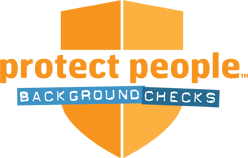Frequently Asked Questions
Background checks can reveal red flags for behaviors you need to know about. And should any sort of litigation ever emerge against your organization, you must show your due diligence in screening candidates, employees, and volunteers.
A number of industries—especially those that require the handling of other people’s personal and private information—require background screenings. These include the home healthcare, financial, and education industries among others. But even if your organization does not operate in or provide services to these industries, there are still enough crucial reasons to run them.
Yes, you do. If you want to order and review any kind of background check in order to determine somebody’s eligibility, you must ask their permission.
You need the candidate’s full legal name (first name, middle names, and last name), full date of birth, and Social Security number. The Social Security number is used to verify the identity of the person being checked. A driver’s license number is needed to run a motor vehicle report.
The best option is to run a comprehensive background screening on your employees and volunteers at the point of hire and check annually after that. Hiring someone doesn’t mean that he or she won’t commit a crime in the future. Without a periodic check, you have no way of knowing if someone has been convicted unless the information is volunteered. It is important to check with your insurance company to see what they require.
If you intend to decline an employment applicant based on what was found in the background screening, you need to provide the applicant with at least two notifications, commonly known as the pre-adverse and adverse action letter. For more information on the pre-adverse and adverse action letter CLICK HERE.
There are no monthly minimums, but we do ask organizations to order at least one background check a year in order to keep their account active.
While Protect People’s background checks are used for many organizations across numerous industries, we see some industries where background checks are especially critical to keeping organizations safe. These include: non-profit, volunteer, public and private education, and youth sports.
